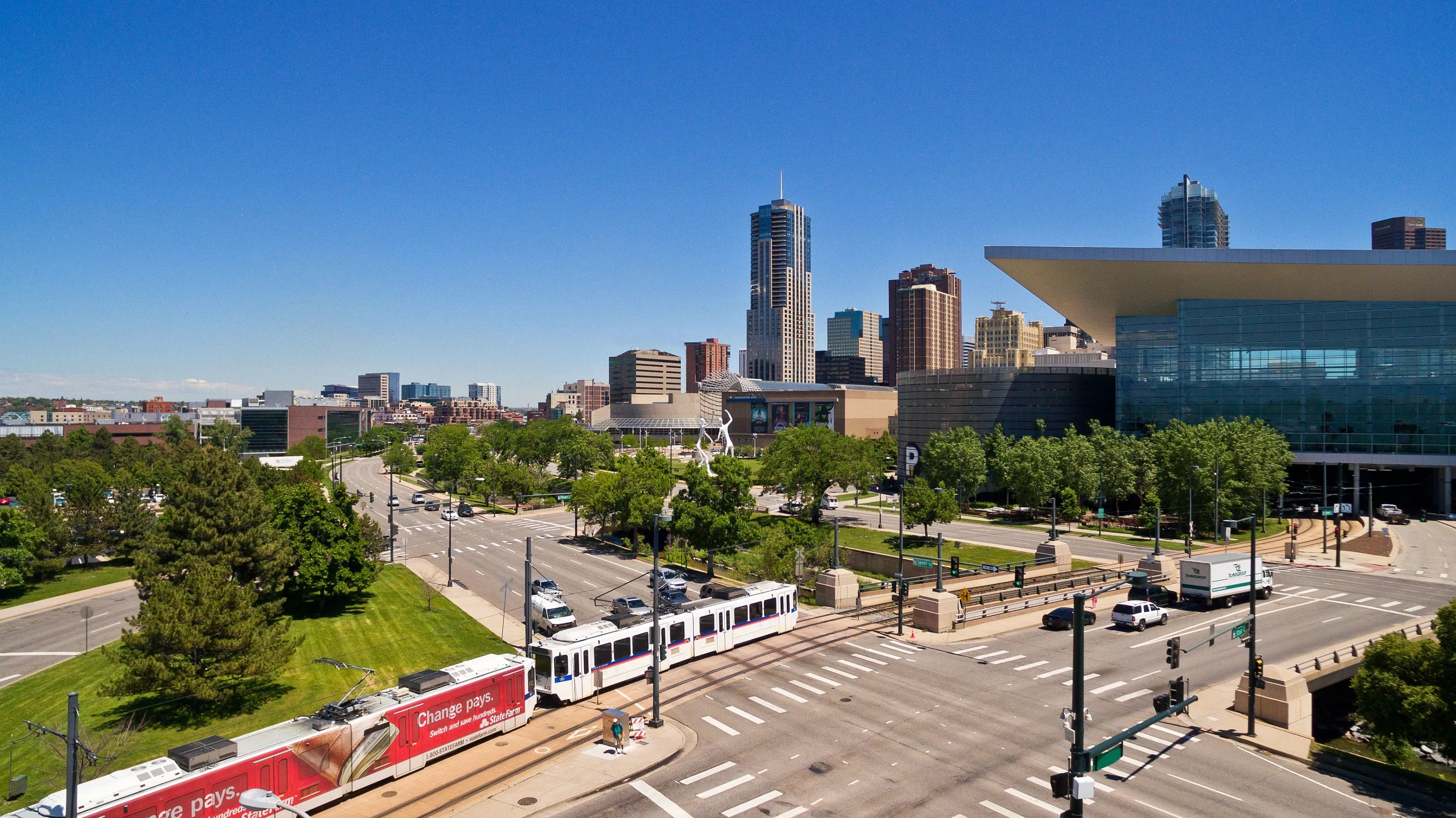
RTD

Audio By Carbonatix
With just over six weeks remaining before Denver’s municipal elections, incumbent Mayor Michael Hancock shared a stage with three rival candidates who had harsh words for his record on equitable growth and the environment.
“You’ve heard the definition of insanity: doing the same thing over and over again and expecting a different result,” said Lisa Calderón, a community activist and Hancock challenger. “That includes re-electing the same people who are not changing or being aggressive enough in where we need to go.”
Hancock, Calderón, former RiNo Art District president Jamie Giellis and former State Senator Penfield Tate debated environmental and sustainability issues at a candidate forum at the Alliance Center in downtown Denver on Thursday, March 21.
Among the top issues facing Denver, all four candidates agreed, is the need for the city to do its part in combating climate change by reducing greenhouse gas emissions. Hancock said his administration is making progress on that front, but pledged to do more.
“Denver currently has a plan to reduce emissions, so it’s about expanding our Energize Denver program,” said Hancock, referring to a city initiative to reduce emissions from building energy use. “We need to accelerate, having more of our commercial buildings involved, as well as accelerating benchmarking and energy efficiency.”
Hancock’s plan to reduce emissions, released last year, calls for a 15 percent citywide reduction by the end of next year, 30 percent by 2025 and 45 percent by 2030. But Denver’s emissions levels have remained flat for much of the last decade, with modest progress in areas like renewable electricity largely offset by rising emissions from the transportation sector and the city’s continued economic and population growth.
Transportation, which accounts for over 20 percent of Denver’s greenhouse gas emissions, was a major topic of discussion at Thursday’s forum. All three challengers said that Hancock hasn’t done enough to reduce the city’s dependence on cars and to encourage residents to use cleaner, alternative modes of transit.
“We need to come up with more effective and efficient ways to move people around this city, to get them out of single-occupancy vehicle trips,” said Tate.
As part of its Mobility Action Plan released in July 2017, Hancock’s administration aims to reduce the number of commutes made in single-occupant vehicles to 50 percent, and has set an interim goal of 60 percent by the end of next year. But the most recent data available shows that figure at 68 percent, having declined slightly from a peak of 73 percent in 2015.
Hancock highlighted many of the transit-focused goals in the city’s Denveright master plan, including proposals for Bus Rapid Transit systems along corridors like Colfax Avenue. But Giellis said she believes that in addition to making Denver’s streets more bike- and pedestrian-friendly, the model for the city’s transit future can be found in its past.
“Denver is a city that was built on a streetcar network,” she said. “It was built to connect our neighborhoods, and that needs to be the focus. That’s the only way we move the needle on commuter usership of transit.”
One candidate who wasn’t present on stage at Thursday’s forum was artist and activist Kalyn Heffernan, who declined an invitation in protest of its $15 entry fee, and instead demonstrated outside the event.
A common refrain from Hancock’s challengers throughout the campaign has been that the mayor is too closely aligned with business and development interests, and Calderón, Giellis and Tate all argued on Thursday that true progress on environmental and climate issues won’t be possible in a city where developers wield so much influence.
“Just as we’re at a critical point with our planet and the environment, we’re at a critical point with regard to the future of our city,” Tate said. “This city is out of balance. People feel that development has been done to them, and not with and for them. We’ve let developers tell us the city we get; they haven’t had a mayor who has told them what we the people of the city want.”
“We have grown at an exponential rate, but it has not benefited everybody,” said Giellis. “We can do so much better than this. But it takes vision, and leadership, and boldness, and not being afraid of the big ideas.”